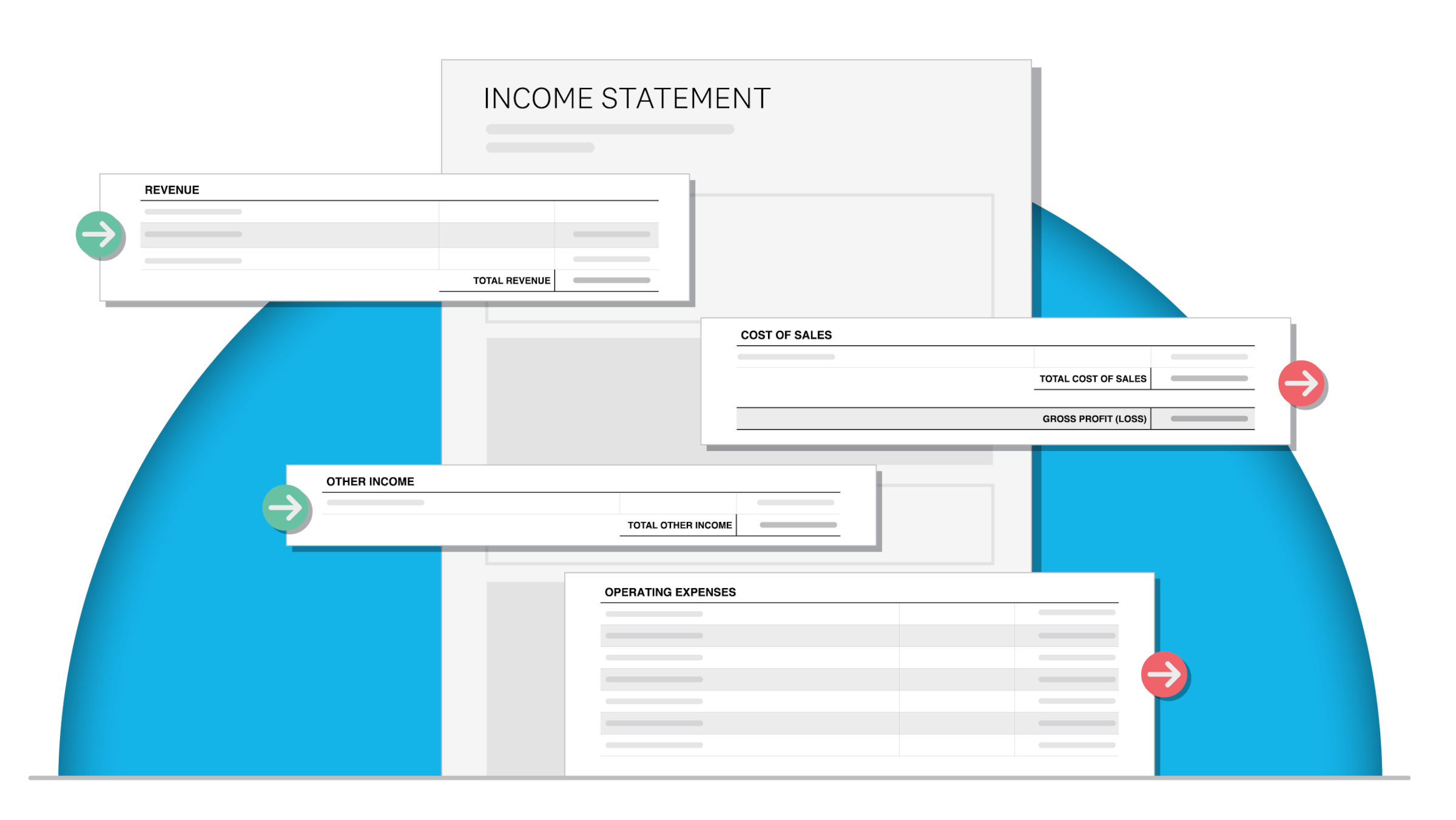What is cost of sales and how to calculate it
Learn what cost of sales is and how you can use it to guide financial decision making and cash management.

Published Tuesday 15 October 2024
Cost of sales (COS) tells you how much money goes into delivering your goods or services to a customer. It’s the cost of providing a product or service.
Understanding everything that goes into a sale can help you set prices, maintain a healthy profit, and plan for the future.
We break down the components that make up COS and show you how to calculate cost of sales. Whether you’re running a manufacturing company or building a service-based business, we share examples that help you apply these calculations to your situation and gain clarity over what goes into every sale.
What is cost of sales?
Cost of sales represents all the costs that go into providing a service or product to a customer. You might also see it referred to as cost of goods sold (COGS). Knowing how much it costs to serve your customers is fundamental to making good financial decisions, like setting competitive prices and sourcing suppliers.
For most small businesses, the cost of sales is the same as direct costs – the expenses directly linked to the goods or services you sell. This isn’t to be confused with indirect costs, which are general expenses in your business that don’t directly relate to making your products or delivering your services.
Cost of sales differs from business to business. A bricks-and-mortar retailer will have costs like stock and packaging, while a freelancer offering social media services needs to pay software subscriptions to deliver client work.
Why is cost of sales important?
As demonstrated in the cost of sales example above, understanding what goes into your product or service helps you figure out the profitability of customer purchases. The cost of sales figure is a baseline – you know you need to charge above this to make a profit.
While labor costs are typically easy to work out, other expenses can catch beginners out. Ecommerce businesses that use their home as an office will enjoy good margins at first, but that will change if they eventually need to pay for a warehouse or workspace.
You should also consider the type of cost – fixed cost or variable cost – when you’re calculating COS For example, employee salaries are considered fixed costs – not because they never change, but because they’re not tied to your production levels. Shipping is a variable cost, because it could change depending on the supplier, the distance, and the amount of product being delivered. Ideally, your cost of sales calculation should include all fixed and variable costs directly associated with providing your products or services to customers.
Fluctuating fixed and variable costs are another reason to calculate cost of sales regularly. That way, you can spot and deal with things that put pressure on your profit margins – such as rising delivery fees – and make the right call on when to raise your prices.
Cost of sales vs. expenses
By definition, cost of sales is the expenditure that’s directly linked to the sale of your products or services. ‘Expenses’ refers to the costs associated with running your business.
- You might pay a PR agency to help you land press coverage about your brand. This is a business expense, but it doesn’t count towards the direct costs of selling your product to customers.
- If you’re running an online store, you couldn’t serve your customers without paying for delivery – the products would never arrive at their address. So delivery fees are part of your cost of sales.
When it comes to cost of sales vs. expenses, performing and analyzing both calculations can help you make good financial decisions for your business. When sales are low, you might need to look at reducing your expenses, but when your profit margin shrinks, you might need to reduce your cost of sales.
How to calculate cost of sales in different industries
Depending on the type of business you run, you’ll need to tweak the cost of sales equation for the most accurate result. Here are example equations for service businesses, retailers, and manufacturers.
Cost of sales example formula for service businesses
Service businesses tend to count up all their input costs, including the employees who deliver services and the facilities where they’re based. Back-office employees aren’t included in the cost of sales. In some cases, travel and equipment costs might not be relevant either (say, for a freelancer working at home on a laptop).
Cost of sales example formula for retailers
Retailers can use this cost of sales formula for inventory accounting. An ecommerce business might choose to add shipping and transaction fees, which are common for every retail sale.
Cost of sales example formula for manufacturing
Manufacturers have raw materials and production costs to consider in their cost of sales calculations. A manufacturer might choose not to include warehousing or freight if they see these as operating expenses.
Cost of sales examples
You might find it hard to decide whether an expense counts as a cost of sale. For example, if you pay your team commission, you could include this in the price of delivering your product or service, or decide that commission is an operating cost instead. Or if you’re repairing or maintaining a piece of equipment used to create your products, you might choose to see this as a COS or an operating expense.
What matters most is that your definition of COS is consistent. If commission is included in your cost of sales calculation, include it every time you work out how much it costs to deliver a product or service. Otherwise, you’ll have different figures for the same type of sale, which makes it harder to base decisions on COS.
Retail business example
So, what’s the cost of sales for a retail business?
The owner of a homeware store applies the cost of sales formula for a new item – handmade pottery cups – so they can set a competitive, profitable price.
The owner buys the cups from a supplier for £5 each. To get the cups shipped from the supplier to the store costs £2. And when the cups arrive, an employee is responsible for putting them on the shelves and guiding customers towards the purchase. The cost of their labor equates to £3 per cup.
So the total cost of sales per cup is £10. For a 50% profit margin, the store owner settles on a retail price of £15 per handmade cup.
FAQs on cost of sales
How can I reduce my cost of sales?
Bringing down the cost of sales helps you improve business profitability and set competitive prices. There are lots of parts to the cost of sales formula, so you have plenty of ways to reduce costs, such as:
- Negotiating with suppliers to get a better price or terms
- Shopping around for better deals on raw materials or stock
- Increasing production efficiency with new technology, equipment, or skills
- Improving inventory management so you’re not over- or understocking (inventory software can help with this)
- Outsourcing specific skills or functions so you don’t need to hire staff
How does the cost of sales affect profitability?
Your cost of sales directly affects your profitability – if there isn’t much difference between the cost of sales and the retail price of your product, there won’t be much profit for your business. A higher cost of sales affects gross profit margins and overall net profit too: if you make £100,000 in sales revenue this year but your cost of sales is £90,000, that doesn’t leave you much cash!
Your cost of sales should leave room for a healthy profit, while still letting you set competitive prices for your customers.
What's the difference between cost of sales and cost of goods sold?
Cost of sales and cost of goods sold (COGS) are often used interchangeably, but the meanings are slightly different and they’re used differently, too.
Service businesses might swap COGS for cost of sales, because this calculation encompasses costs that come with selling and distributing services, like commission and transport fees.
But companies that manufacture or trade products typically use COGS because this calculation focuses on the direct costs associated with creating merchandise, like the raw materials and labor that go into manufacturing.
Simplify your cost tracking with Xero
The costs of running a business and making a sale change all the time. And if you don’t have a simple way to monitor and manage your costs, your spend could quickly spiral.
With Xero job costing software, you get a live view of your income and outgoings, so you always know the state of your finances.
You can also do deeper financial analysis with our analytics and reporting features. View cash flow projections, income and expenditure reports, and a range of financial statements and calculations to keep you in control of your numbers.
Sales grow and late payments improved*
Read the full report for Xero's small business insights focusing on several core performance metrics, including sales growth, time to be paid, and late payments.
US sales: +0.8%*
Small business sales increased an average of 0.8% y/y in the three months to September. Published: 6 February 2025.

Disclaimer
Xero does not provide accounting, tax, business or legal advice. This guide has been provided for information purposes only. You should consult your own professional advisors for advice directly relating to your business or before taking action in relation to any of the content provided.
Start using Xero for free
Access Xero features for 30 days, then decide which plan best suits your business.